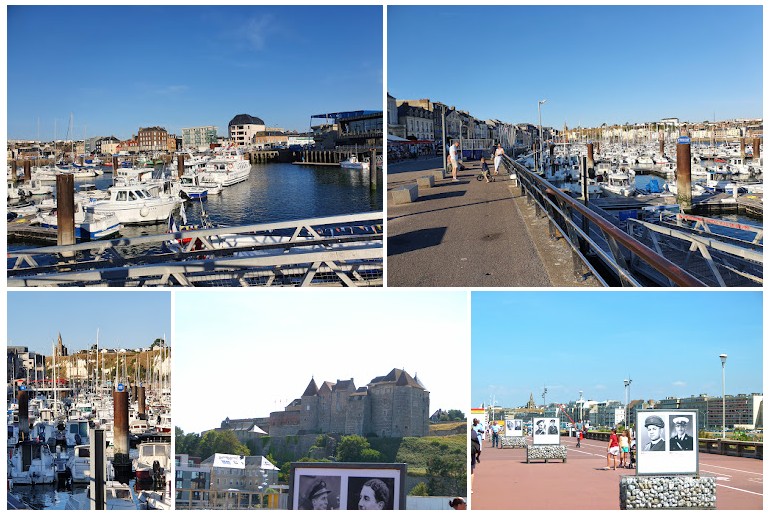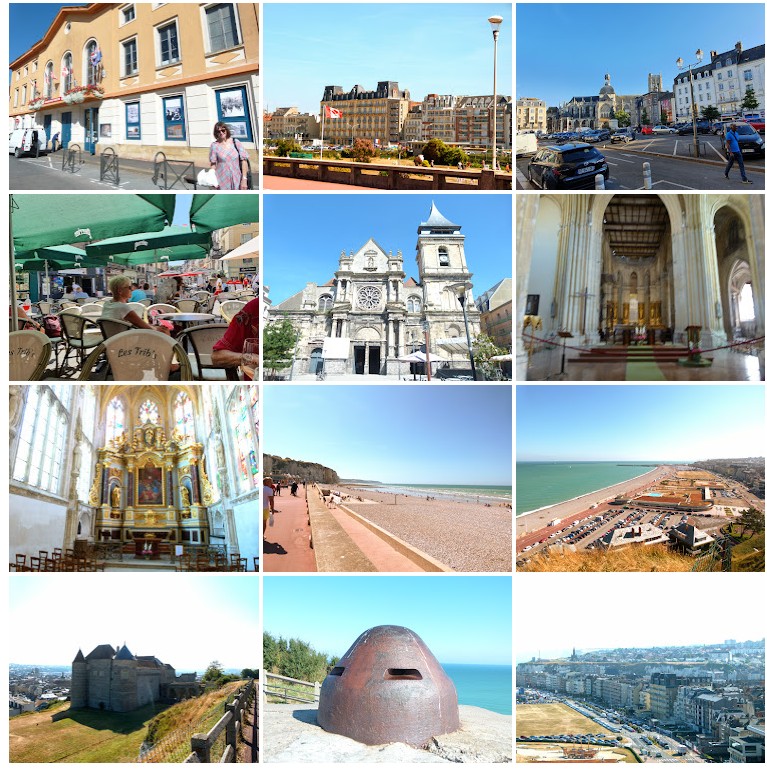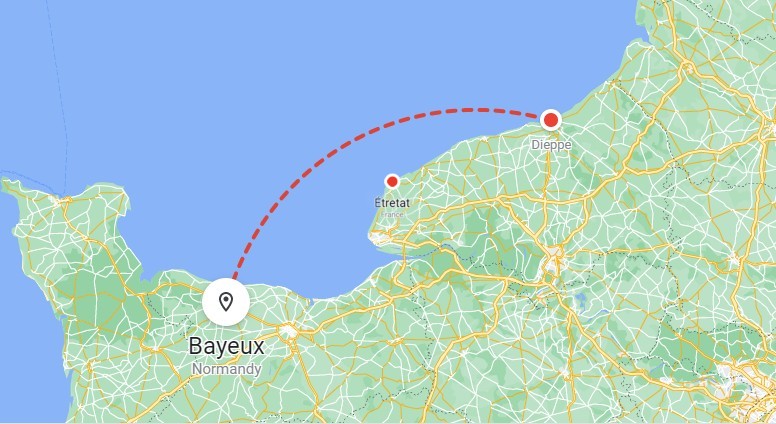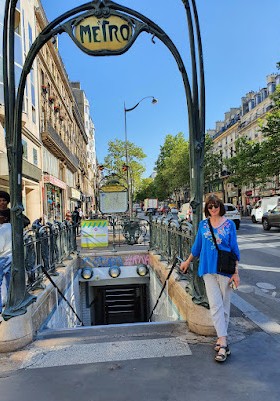In Dieppe we wondered why there were so many Canadian flags flying.

Then we discovered the 'Memorial Museum to 19th August 1942'.
This commemorates Operation Jubilee, that was a disastrous attempt to take the port, as a test of the German defences.
Some 6000 Canadians led the raid with allied air cover and a tank regiment.
Over half were killed or wounded. Nearly 2000 were captured. The tanks were destroyed as they landed. The air cover was annihilated.
The Germans suffered less than 600 casualties.
Both sides learnt valuable lessons. Rommel was forewarned and strengthened defences elsewhere.
Yet without this terrible experience, D-Day could have been a similar disaster.
Don't try to attack a fortified city. Go for the distant beaches. Take the cities from behind.
C'est la guerre!

Back in Giverny we had been assured by another couple that the jewel of the coast was a village called Etretat. So instead of going directly to Bayeux, our next overnight stop, we wound our way down country lanes until we came upon a huge traffic jam, moving at a snail's pace (at one point a snail would have been winning). Eventually we arrived to find ourselves in a seaside resort with less to recommend it than Woy Woy. Worse, we would need petrol and there is no station in Etretat. That meant driving out the other side for another 20 km. I was not amused. We were happy to put Etretat behind us.


